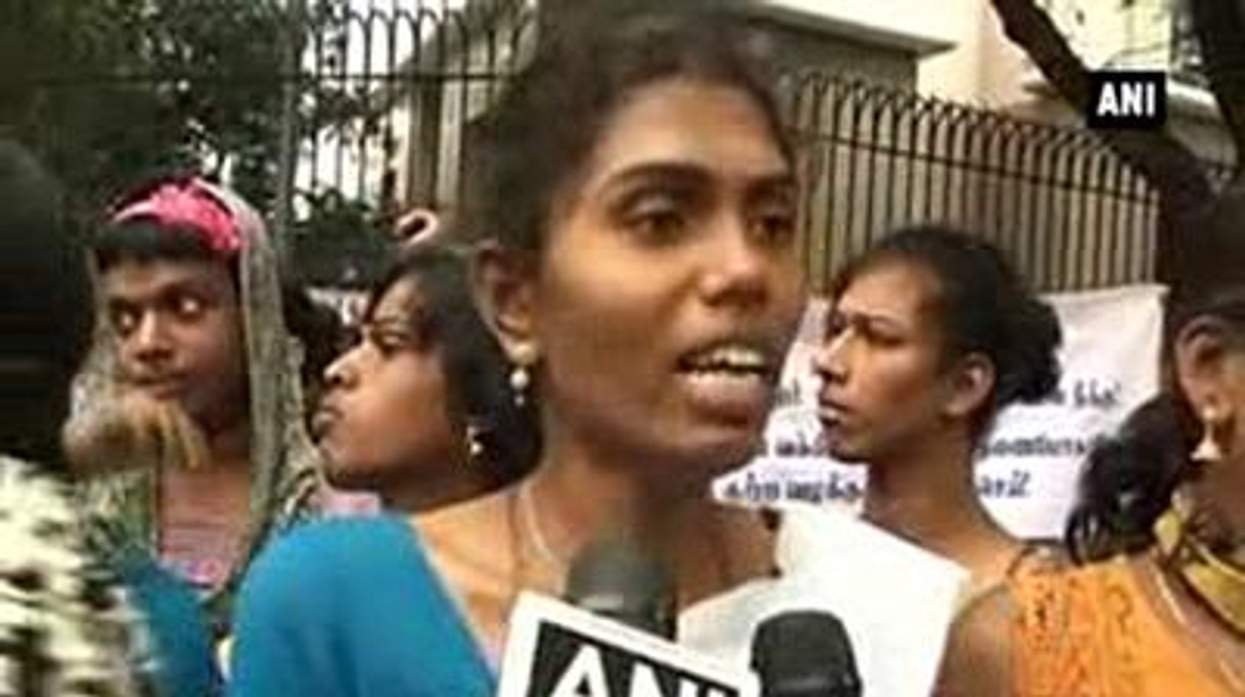Over the weekend, Indian director Shankar Shanmugham stayed inside his house in Chennai as trans rights activists sat resolutely outside, protesting the treatment of a trans character in his latest Tamil film, I. The popular director paid for police protection Monday as activists vowed to continue protesting until their demands were met, reports the Indo-Asian News Service.
The protesters' demands? A removal of reportedly transphobic scenes from the film and a public apology from Shankar and actor Vikram, who portrays I's romantic lead, Lingesan. Advocates have particularly decried how the film's trans character, a makeup artist played by trans actress Ojas Rajini, sexually propositions Lingesan, and for Lingesan's rejection of her for being trans. After the offending scene, Rajini's character becomes a villain.
" Transgender [people] are shown as sex freaks in the movie," activist Sasha Reddy explained to The Times of India. She was joined by trans TV personality Rose Venkatesan, who declared to media Sunday her intention to appeal in person to government officials with fellow advocates if Shankar did not address their complaints.
A group of about 35 followed through Monday, sitting outside a Central Board of Film Certification office to continue demanding an apology from Shankar and removal of the offending scenes, and said they would keep protesting until they see change, notes Gay Star News. Films cannot be shown in India unless they have the board's approval. Venkatesan later joined 10 other advocates to file an official petition with the Chennai commisioner's office. Reddy told the Times that the group is considering taking legal action.
Indian culture has a tumultuous history in regards to its trans citizens, particularly its transfeminine hijra population. Even after the government legally recognized a third gender in April 2014, trans people remain socially marginalized, though incremental gains in the entertainment and political arenas indicate that this reality may be slowly changing.




































































Charlie Kirk DID say stoning gay people was the 'perfect law' — and these other heinous quotes